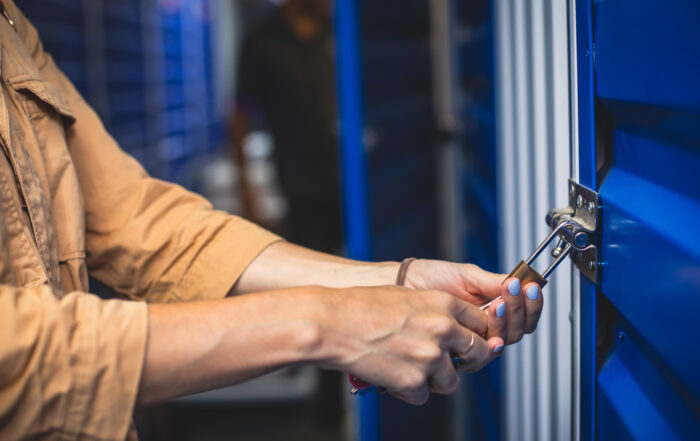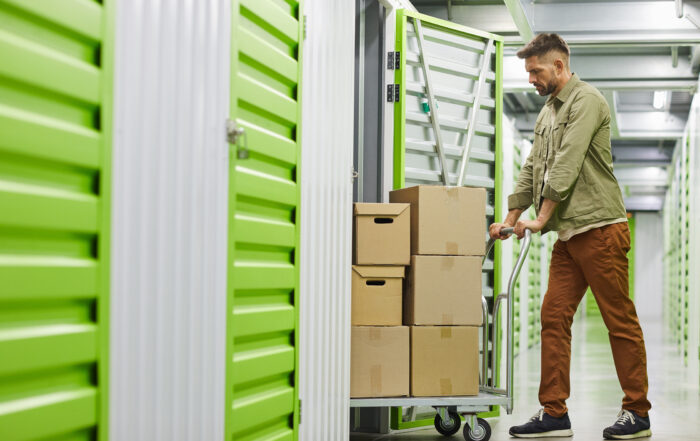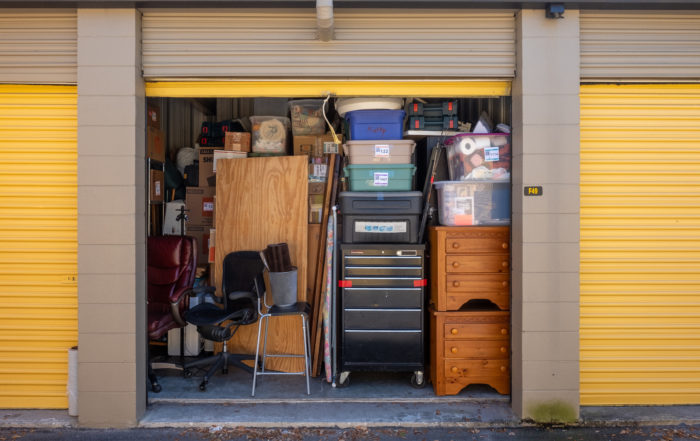The Best Storage Boxes to Use for Long-Term Storage

You may think that you can get away with just plain old cardboard boxes and reused Amazon packages, but long-term storage requires things a little heftier. We recommend fighting against the urge to grab as many cardboard boxes as you can from your local hardware store or grocery store and instead invest in other options instead.
When packing anything into storage, it’s definitely wise to consider what type of bins and boxes you’ll be using. Otherwise, you could risk damaging valuables or sentimental items or run the risk of boxes getting moldy or pest-infested, which in turn will ruin your items inside of them.
If you are planning a move sometime in the near future or are in the process of packing items into storage, then read our guide below to find out what boxes you should be using for your storage needs.
Here’s the best storage boxes we’ve found.
Why Ditch Cardboard Boxes?
We get it. Cardboard is cheap and readily available. They’re great for quick moves and short-term storage, but fail when it comes to anything longer than a few months. They are easily damaged by heat, humidity, and fluctuating temperatures.
These types of boxes can also easily attract rodents and pests, which can lead to an annoying invasion of your personal stuff. On top of that, storing cardboard boxes in non-climate controlled units (like in drive up storage) can lead to weather damage and the other negative things we mentioned above, like mold.
The Best Storage Boxes
Clear Plastic Bins
Clear plastic bins are better for long-term storage use, since they won’t be easily damaged. Not only are they more durable, but they will offer more protection against the outside elements and last for multiple uses. While the cheaper options may be more tempting, plastic bins will give you the most bang for your buck, making them a more economical choice.
Another great advantage with most plastic bins is that they are easily stackable so that you can maximize storage space. This will be especially important if you are tight on space or hoping to get more room out of your storage unit. Remember that although it isn’t good to pile boxes up too high in a storage unit, a reasonable amount of stacking can save you money and increase the space you have to work with.
They don’t have to be clear, but clear bins make it a lot easier to see what’s inside of them. Plastic totes that aren’t see-through require labels or for you to open and sift through them to know what’s exactly inside.
Special Packaging
Some items need special packaging to keep them safe. Items such as electronics (TVs, computers, etc.) should be stored in original packaging to prevent damage. You can get special document boxes for important documents or books, safes for any legal documents that you may want to store (we don’t recommend leaving these in storage units, though), and heavy-duty instrument cases for non-wood instruments.
If no original packaging is available, you may opt for special packaging that is designed for whatever type of items you are storing. Of course, this will be more expensive, but it is worth it to have your things protected during their time in extended storage.
Things to Consider
Labels
Another top tip for keeping organized and economical when it comes to storage is to create labels for each bin. This makes it easier when you’re trying to find an item so that you don’t waste unnecessary time scanning each box or making a mess unpacking things to find what you’re looking for.
We recommend labeling them like this:
- 2 labels on each box on different sides
- The room where the contents go
- If it’s fragile or not
- The top 3 items in the box (or a general category such as “Name’s Desk stuff)
Storing Clothing
If you plan on storing clothing, there are boxes with racks that allow you to hang them. We don’t find those necessary. Put them in a hardtop suitcase and fold them tightly. If you have any fragile garments, such as silk, cashmere, or inherited clothing, do not store these. Make sure they are getting the care and humidity they need to avoid damage, fading, and tears.
Box Sizes
Of course, before you buy any type of boxes, you need to have size in mind. Consider what you are storing and how much room each item needs to be placed safely into a box. For example, small boxes generally hold 50 pounds worth of items, while large boxes can hold 65 pounds. When stacking, always stack lighter boxes on top of heavier ones.Finally, if you need a little extra advice or a drive up storage unit, give us a call at (505) 294-8884 or visit us online! We’ll be happy to help.
Recent Posts
Understanding Self-Storage Lease Terms: What to Know Before You Sign
Renting a self-storage unit is often one of those tasks that feels simple at first—pick a unit, sign a lease, move your stuff in. But if you’re like most people, the fine print on that [...]
What Not to Do When Using a Self-Storage Unit: 9 Common Mistakes to Avoid
Self-storage units are a convenient and affordable way to store everything from furniture and keepsakes to business inventory and seasonal gear. Whether you’re moving, downsizing, or just trying to declutter your space, renting a storage [...]
How to Keep a Storage Unit Clean and Tidy
A self-storage unit can be a lifesaver when you need extra space, but without proper organization and upkeep, it can quickly become cluttered. A clean and tidy storage unit not only makes it easier to [...]



